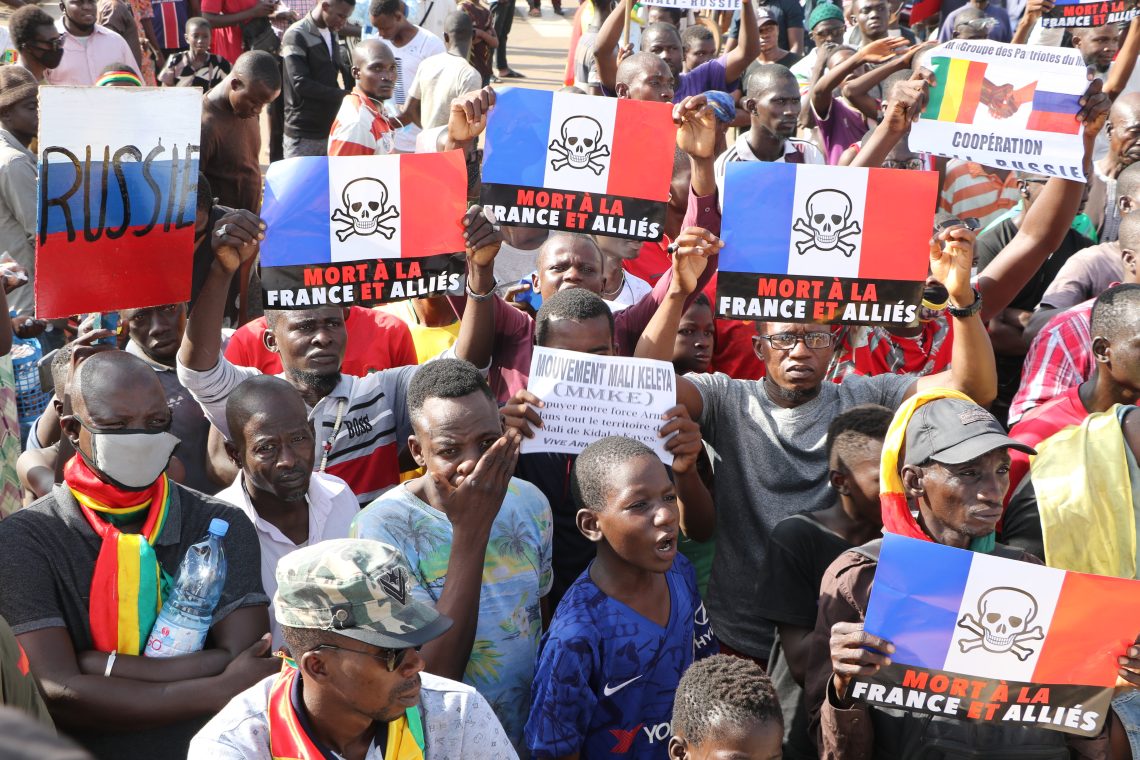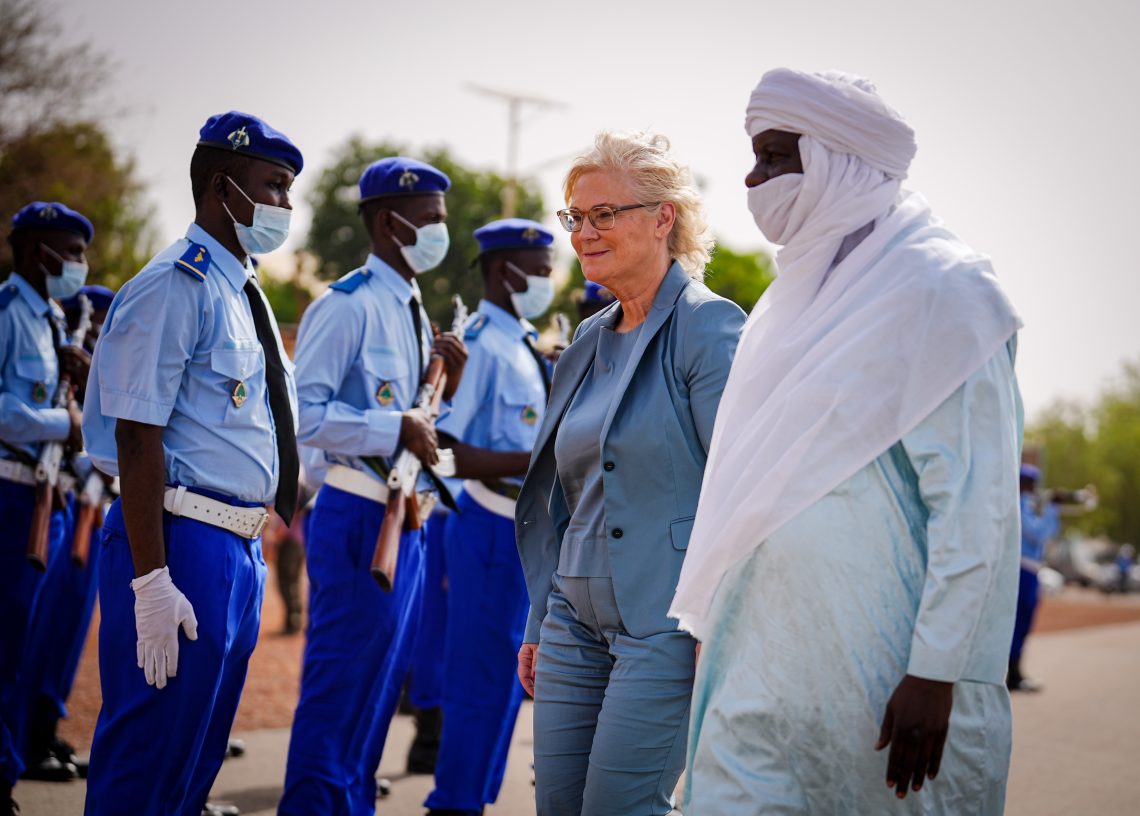The Sahel trilemma
Africa’s Sahel region has become another arena for competition between the European Union and Russia.

In a nutshell
- The Sahel’s security outlook will not quickly improve
- The arrival of Russia’s Wagner Group in Mali is a wild card
- UN stabilization forces in the region are fractured
From a geopolitical perspective, the world is at a critical juncture. While the outcome of the war in Ukraine will be pivotal, the Sahel region has become another stage for competition between powers, one where the European Union and Russia face strategic dilemmas.
State fragility and political uncertainty
The third wave of democratization triggered constitutionalism and institutional changes in the Sahel. However, democracy never consolidated in the region. The recent succession of coups exposes the failure of democratization there and the fragility of the states themselves.
In turn, changes in the political outlook have affected relations with external actors. The 2020 military coup in Mali signaled a shift in the relations between Bamako and Paris. The evolution of the political and security situation was accompanied by the progressive deterioration of relations between the two countries, which led to the suspension of joint military operations and the withdrawal of France from Mali. After the French foreign minister described the military junta as “illegitimate” and “out of control,” diplomatic tensions escalated, and Bamako gave the French ambassador 72 hours to leave the country.
Amid a deteriorating security context, the political deadlock in Mali seems far from resolved. The Economic Community of West African States (ECOWAS) recently upheld the sanctions imposed on the military junta, which insists on delaying the transition to civilian rule.
In Guinea, Alpha Conde – who had resorted to constitutional engineering to remain in power – was also deposed in a coup in September 2021. Like in Mali, the junta now in charge does not seem committed to a return to civilian rule, at least in the short term.
The latest in this sequence of coups took place in Burkina Faso, where President Roch Marc Christian Kabore was deposed by the military, supposedly for his failure to contain terrorist groups operating in the country. The military junta has announced a three-year transition plan, but it is doubtful whether the military will respect the deadline.
Myriad actors
These political indicators suggest that the security outlook will not improve, at least not in the short term.
International and regional security efforts have largely failed. Between 2014 (year zero of Operation Barkhane) and 2020, conflict-related deaths increased by 1,376 percent, while violence extended from Mali into Niger and Burkina Faso.
The increase in lethality is the direct consequence of the proliferation of armed groups. These have included terrorist organizations like the Group for the Support of Islam and Muslims (JNIM) – a coalition of Salafi-jihadist insurgent groups – and the Islamic State in the Greater Sahara. Also present are local militias; regional and international forces like the G5 Sahel, the United Nations mission in Mali (MINUSMA) and Takuba; and private military companies like the Wagner Group.
The recently founded Coalition for the Sahel – a platform that includes ECOWAS, the African Union, and the G5 Sahel – represents the latest of several attempts to coordinate the myriad regional and international actors operating in the region. The coalition is guided by four pillars of action: fighting terrorism, building the armed forces’ capacity in the region, supporting the return of the state and administrations, and assisting development.
State failure and the disintegration of the social contract have been obstacles to regional stability.
The arrival of the Wagner group in Mali adds further complexity to a theater of operations where state armies, international stabilization and peacekeeping missions, extremist groups and self-defense militias all converge.
There is, however, one important exception. More effective in the containment of irregular armed forces and maintaining that fundamental prerogative of the state – the monopoly of force – Niger has been described as a beacon of stability in an unstable region. However, after a decade of relative stability, the era following the presidency of Mahamadou Issoufou has been characterized by growing political tension and insurgencies.
While the triggers of the conflict in the Sahel, and the actors involved, are multiple, state failure and the disintegration of the social contract have been structural obstacles to peace and stabilization.
The European strategic concept
According to the EU, “the countries of the Sahel and of the European Union are natural partners, bound by history, geography and culture.” Sahelian countries play a significant role in the EU strategic concept. After the 2011 fall of Libya’s regime of Muammar Qaddafi, it became clear that the Sahel had become a front line in the war against terrorism and organized crime, as well as a point of transit for many migrants trying to reach Europe.
There is also an economic dimension. Mali is richly endowed with gold and lithium and is home to Africa’s biggest uranium reserves. Until recently, the country had been a strategic supplier of France, whose energy security largely relies upon nuclear power. However, COMINAK, once one of the world’s largest uranium underground mines, ceased operations last year due to a depletion of resources.
The relevance of the Sahel to Europe’s strategic concept is reflected in the unprecedented decision to establish a stabilization action in Mali under the African Peace Facility. At this point, though, the initiative has failed: in February, shortly before the Russian invasion of Ukraine, and while citing political, operational, and legal obstacles, France and the European states comprising the Takuba Task Force announced a coordinated withdrawal from Malian territory.

The decision resulted from a combination of factors: rising casualties, the upcoming presidential elections in France, and increasing anti-French feelings as people accuse Paris, and ECOWAS, of double standards regarding regimes in the region. The junta’s refusal to follow the transitional road map and its decision to rely on the Wagner group for security finally prompted the Europeans to back off, at least for now.
As France and the EU exit Mali and recenter their operations in Niger, discussing a relocation rather than a withdrawal from the Sahelian theater of operations is more accurate.
Russia’s strategy in Africa
However, in politics, there are no empty spaces. As France and the EU withdrew from Mali, new partners like Russia were willing to step in.
Russia has a strategy for Africa in which military cooperation and energy play a prominent role. Like Beijing, and unlike the West, Moscow does not want to promote democracy across the continent and has no hesitation about partnering up with undemocratic regimes.
The recent announcement of a deal between the Malian junta and the Wagner Group adds uncertainty to the regional security outlook. With previous experiences in Nigeria, the Central African Republic (CAR), Syria, Sudan and Mozambique (not to mention Crimea and Eastern Ukraine), the Wagner Group has accumulated experience in complex and violent theaters of operation, ones characterized by state fragility and numerous armed actors.
As in Syria, getting Russia’s support for the isolated and fragile Malian regime comes with a price.
While the relationship between the Wagner Group and the Kremlin remains opaque, it is possible to say that Russia has used it as a vehicle to advance its geopolitical interests while escaping excessive exposure to international scrutiny.
In Sudan and CAR, Russia has been rewarded for the training of African forces by the Wagner group: private Russian companies received mining concessions. In Mali, there seems to be a correlation between support for the military junta, hostility toward France and calls for closer cooperation with Moscow. Wagner operatives are already providing security to the junta in Bamako and have also been deployed in the region of Timbuktu, where Operation Barkhane was previously focused.
The consequences of this engagement will likely go beyond the battlefield. As in Syria, the support for the isolated and fragile Malian regime comes with a price. It includes access to resources and loyalty to Moscow.
Scenarios
From a realistic political perspective, actors in the region confront a trilemma. From now on, there seem to be three scenarios. The indefinite, increasingly contested and potentially ineffective presence of international and regional forces; strongman rule and unconventional, brutal forces; or chaos.
The war in Ukraine has added more uncertainty to this already volatile context. Rising food prices in a region plagued by food insecurity may lead to famine and unrest both in the Sahel and Maghreb. While Moscow, Paris and France are reviewing their strategic priorities regarding Ukraine – where mercenaries from the Wagner Group have allegedly been deployed in the eastern parts of the country – Russian and European interests in the Sahel may converge in the short term.
At the moment, both would benefit from stabilization. However, their interests are destined to collide eventually, not least because one of the Kremlin’s strategic goals is to reduce the Western presence in the region, which the EU has prioritized advancing. Political choices made by those in charge in the Sahelian states will also play a determinant role.
In this context, three scenarios emerge.
In the first and most likely one, the termination of Operation Barkhane and withdrawal of the Takuba Task Force, and the arrival of the Wagner Group in Mali will pave the way for distinct spheres of influence in the Sahel and the wider region. Countries – especially those under authoritarian regimes – will have an alternative ally besides the West. This scenario assumes that mercenaries stationed in Mali will not be relocated to Ukraine or other areas where Russia has vital interests.
Under the regional leadership of Niger, countries like Senegal, Chad, the Ivory Coast and Togo would choose to reinforce cooperation with France and the EU while condemning the strategy of allegiances implemented by the Malian junta.
Faced with economic sanctions and isolation, Bamako – with the explicit or implicit support from Burkina Faso, Guinea and possibly Algeria – would strengthen its security, economic and diplomatic connection with Moscow. While this may bring security gains in the short term, it would further delay long-term stability, democracy and growth prospects.
An unlikely, though possible, outcome of this scenario would be a proxy war in the region, pitting Russian interests against those of the EU and the United States.
Under a second, slightly less likely scenario, the Malian junta would be forced to change its current strategy to avoid economic sanctions and diplomatic isolation. This scenario would be caused by a retreat of the Wagner Group from the Sahelian theater of operations.
France would likely resume its position as a key ally of the country. But this strategy would not guarantee stabilization, as today’s instability determinants would all remain in place: political cleavages and resentments, state failure, the proliferation of armed groups and regional and international actors.
Two factors cast doubt on such an outcome. First, Malian public opinion seems to favor (at least for now) what is seen as a rapprochement with Russia. And secondly, the fact that while the Wagner Group is relatively independent of Russian military structures, the political and security resources of France and the EU are now focused on Ukraine.
Under a third, less likely scenario, the solution would come from MINUSMA, the 14,000-strong UN stabilization force. This is unlikely considering that MINUSMA is fractured by perceived failure, several casualties and increasing domestic opposition. In addition, the force is highly dependent on the security provided by Operation Barkhane (mainly through airpower), and the priorities of key contributors, including Germany, the United Kingdom and Sweden, have changed over the challenges posed by the war in Ukraine.







